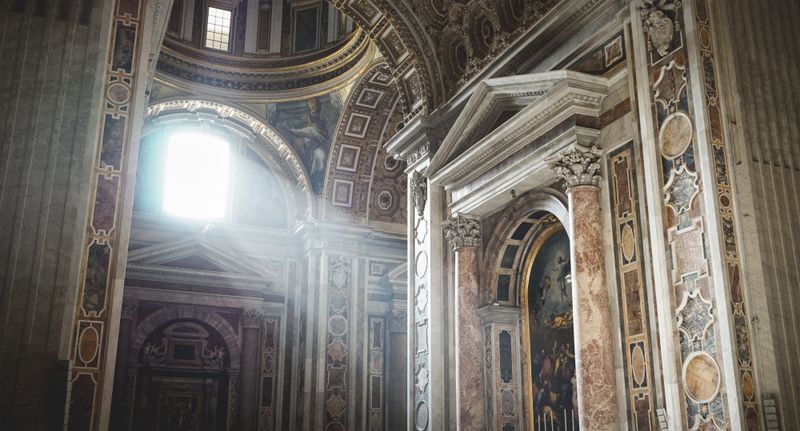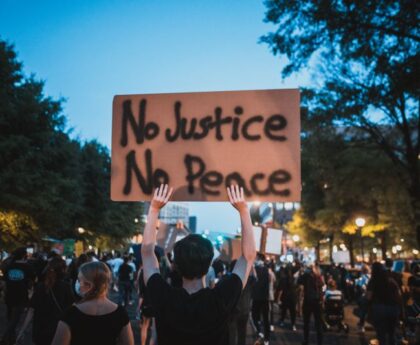France to ban children from wearing the abaya in state-run schools
Background
France, a country known for its commitment to secularism, has announced its decision to ban children from wearing the abaya, a full-length robe worn by some Muslim women, in state-run schools. This move comes as part of the country’s ongoing efforts to update guidelines relating to religious symbols and attire in educational institutions. France has a long-standing ban on religious signs in state schools, dating back to 19th-century laws that aimed to remove any traditional Catholic influence from public education.
Controversy and historical context
This ban follows previous measures implemented by France to regulate religious attire in public spaces. In 2004, the country banned headscarves in schools, and in 2010 it passed a law prohibiting the wearing of full-face veils in public. These regulations have been met with both support and criticism, particularly from France‘s Muslim community, which consists of approximately five million individuals.
Defending secularism has become a rallying cry in France and has strong resonance across the political spectrum. Left-wing supporters uphold the liberal values of the Enlightenment, while far-right voters view it as a means of preserving French society against what they perceive as the growing influence of Islam. This complex dynamic has led France to continually grapple with balancing its commitment to secularism with the concerns and rights of its Muslim population.
Educational perspective
Education Minister Gabriel Attal explained the reasoning behind the ban in an interview with TV channel TF1, stating that when entering a classroom, one should not be able to identify a student’s religion solely by their appearance. This perspective aligns with the principle of secularism, which seeks to separate matters of faith from the public sphere. Proponents argue that by banning religious clothing in schools, France aims to create an environment where all students, regardless of their religious beliefs, feel equal and focused solely on their education.
However, critics argue that such bans infringe on individuals’ freedom of religious expression. They contend that schools should be places that embrace diversity and allow students to express their religious identities freely, as long as it does not disrupt the educational environment or violate the rights of others.
Philosophical discussion and the limits of secularism
This decision raises profound philosophical questions about the role of secularism in a diverse society. Secularism is based on the idea that the state should remain neutral in matters of religion, providing equal opportunity and treatment for all citizens, regardless of their faith or lack thereof. However, the question arises as to whether a strict interpretation of secularism can lead to the suppression of religious expression and discriminatory practices.
In this context, it is worth exploring how societies can strike a balance between the principles of secularism, individual freedoms, and the need to foster an inclusive and tolerant society. This delicate balance requires ongoing dialogue, compromise, and a nuanced understanding of the complexities surrounding religious identity, culture, and the wider social fabric.
Editorial: A time for reflection and dialogue
Amidst France‘s ongoing efforts to navigate the tensions between secularism and religious rights, it is crucial to approach these discussions with sensitivity, empathy, and a commitment to mutual respect. While the intention behind the ban may be to promote equality and create an inclusive environment, it is important to consider its potential impact on individual freedoms and the Muslim community, who may perceive such measures as discriminatory.
Rather than focusing solely on bans, it is equally vital to foster dialogue and understanding among different religious and cultural groups. France can work towards creating a society where individuals are free to express their religious beliefs while respecting the principles of secularism. It is through open and respectful conversations that a more inclusive and harmonious society can be realized.
Advice: Promoting tolerance and understanding
In light of this latest ban, it is crucial for France and other societies grappling with similar challenges to prioritize efforts to promote tolerance, understanding, and interfaith dialogue. Education plays a fundamental role in fostering these values. Schools should encourage an inclusive curriculum that teaches students about various religions and promotes respect for diversity. It is important to create spaces where individuals feel valued and supported, regardless of their religious beliefs.
Furthermore, governments and educational institutions can collaborate with religious leaders and community organizations to promote dialogue and cultivate a culture of coexistence. Engaging in open conversations, organizing interfaith events, and facilitating opportunities for individuals from different religious backgrounds to interact can help break down stereotypes and misconceptions.
Ultimately, addressing the complexities surrounding religion and secularism requires an ongoing commitment to dialogue, empathy, and respect. By embracing these values, societies can work towards building a more inclusive future, where individuals are free to express their religious beliefs while fostering a sense of unity and understanding among diverse communities.

<< photo by Pixabay >>
The image is for illustrative purposes only and does not depict the actual situation.
You might want to read !
- France’s Ban on the Abaya Robe in Schools: Exploring Cultural Identity and Religious Expression
- The Rise of Lamine Yamal: From Diamond in the Rough to Gem of Success
- Unveiling Windrush: Brigade’s Vibrant Tribute at Notting Hill Carnival
- Clash of Titans: Villarreal vs Barcelona, La Liga Thriller Unfolds
- Exploring the Saudi Pro League Showdown: Live Streaming Info for Al Fateh vs Al Nassr
- The Temptation Denied: Eden Hazard Rejects Six Clubs, Remains Loyal to His Barber
- Exploring Bank Holiday Monday Opening Times: A Guide to Tesco, Asda, and More
- “Russian US Open Sensation’s Controversial Social Media Activity Fuels Political Debate”
- Editorial Exploration: Examining the Opening Hours of Major Supermarkets on Bank Holiday Monday
Output: Unveiling Bank Holiday Monday Opening Times: Tesco, Aldi, Asda, Morrisons …
- Salah’s Liverpool Transfer Dilemma: Balancing Profitability and Loyalty
- Exploring the Significance and Festivities of Indian Independence Day
- Education Minister Praises Resilient Students as GCSE Results Day 2023 Unveils Triumphs and Challenges
- Night Rescue in Pakistan: Two Saved from Stranded Cable Car as Helicopters Brave Darkness




